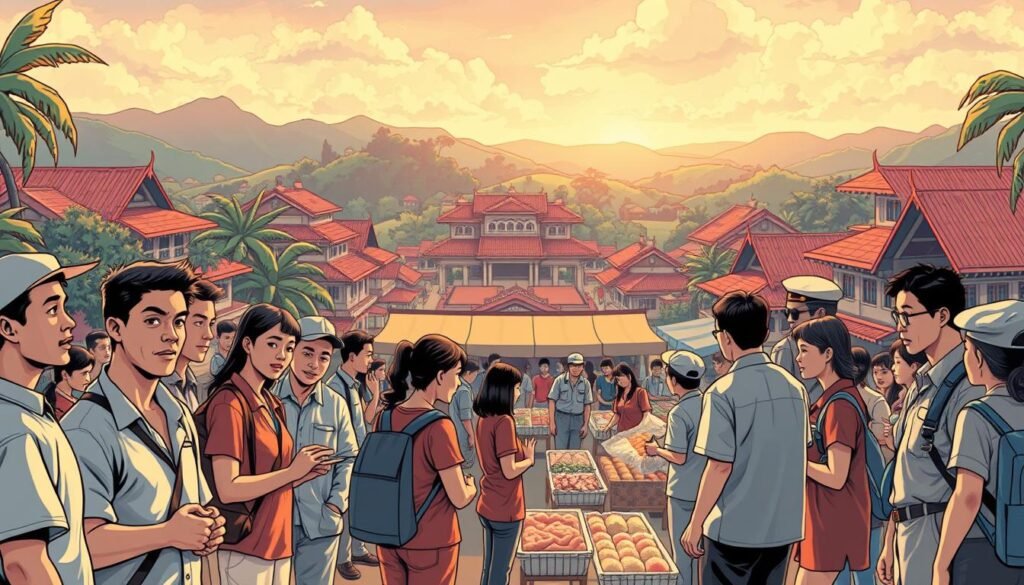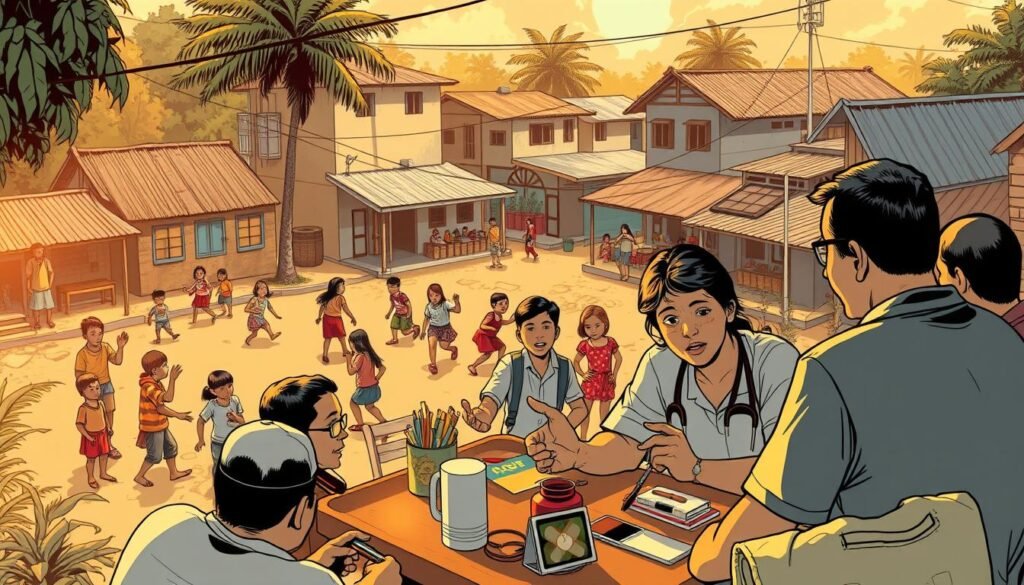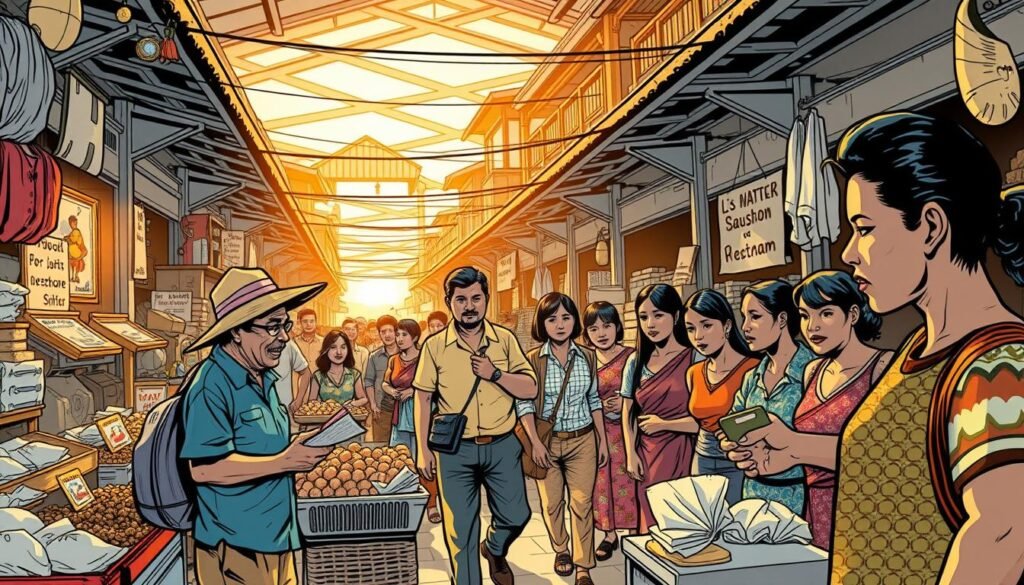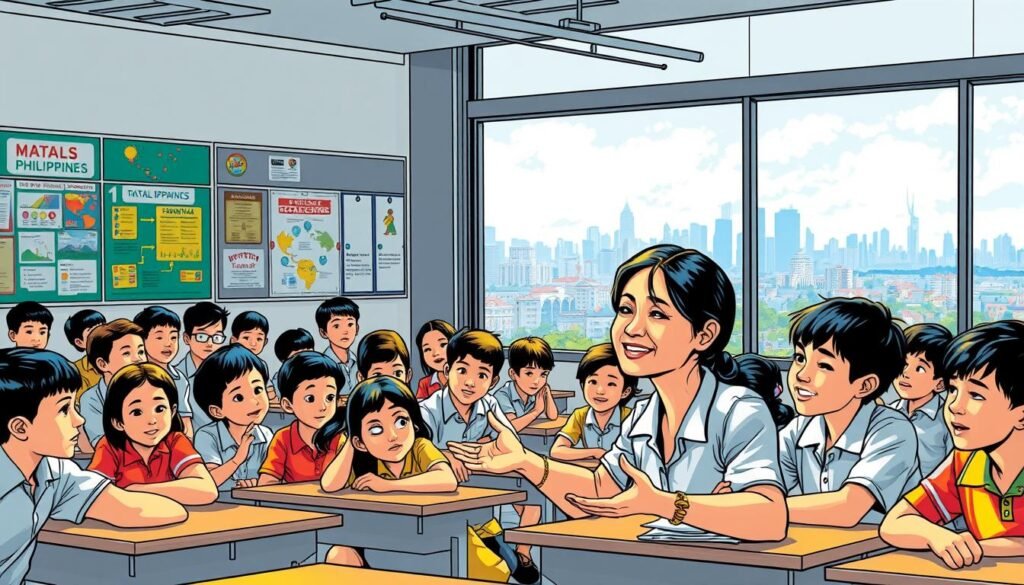Education is a powerful tool that shapes the future of individuals and communities. It plays a critical part in promoting sustainable development worldwide. By equipping people with knowledge and skills, education helps address global challenges like poverty, inequality, and environmental degradation.
In every society, education defines the responsibility of individuals to contribute to their communities. For example, a teacher’s position in a school goes beyond imparting knowledge. It involves inspiring students to think critically and act responsibly. This expectation highlights the broader impact of education on societal progress.
The definition of a role extends beyond individual actions. It encompasses the collective effort needed to achieve sustainable goals. From local communities to the global stage, education fosters collaboration and innovation. It empowers people to create a better world for future generations.
Key Takeaways
- Education is essential for addressing global challenges like poverty and environmental issues.
- Teachers play a vital part in shaping responsible and informed citizens.
- Education fosters collaboration and innovation at both local and global levels.
- Sustainable development requires collective effort and shared responsibility.
- Empowering individuals through education creates a positive impact on society.
Defining the Role: Glossary of Key Terms
From theater stages to classrooms, the idea of a role has transformed into a cornerstone of social theory. Understanding its definition requires exploring its historical roots and modern applications. This section provides a comprehensive glossary to clarify the term in multiple contexts.

Historical Origins and Etymology
The word “role” originates from the French word “rôle,” meaning a part in a play. Historically, it referred to the scripted part an actor performed on stage. Over time, its meaning expanded to include the responsibility individuals hold in society.
Scholars like Ralph Linton and Talcott Parsons have contributed to its modern interpretation. They emphasized how roles shape behavior and expectations in communities. This evolution highlights the dynamic nature of the term.
Modern Interpretations in Social Contexts
Today, the concept of a role extends beyond theater. It includes both ascribed and achieved roles. Ascribed roles are assigned at birth, like gender roles, while achieved roles are earned, such as a teacher in a school.
Social role theory explains how individuals fulfill expectations based on their status. For example, a teacher’s responsibility goes beyond educating students. They act as role models, inspiring students to think critically and act responsibly.
| Type of Role | Definition | Example |
|---|---|---|
| Ascribed Role | Assigned at birth or by societal norms | Gender roles |
| Achieved Role | Earned through effort or skill | Teacher, Doctor |
| Role Model | Someone who sets an example for others | Community leaders |
Universities and academic research have played a significant part in developing these concepts. They provide insights into how roles evolve and influence societal progress. This dynamic nature ensures that definitions remain relevant in contemporary settings.
Exploring Role in Social Structures and Cultural Expectations
Cultural expectations often dictate the way people act and interact within their communities. Every person occupies multiple positions simultaneously, leading to a layered understanding of responsibility and duty. This section examines how roles are constructed within social structures and the influence of cultural expectations on behavior and status.

Social Status, Behaviors, and Norms
In every society, individuals are guided by norms that define their part in the community. For example, a teacher in a school not only educates but also acts as a role model, shaping students’ attitudes and behaviors. This dual function highlights the complexity of roles in social structures.
Symbolic interactionism and functionalism provide insights into how roles guide individuals in various situations. These theories emphasize that roles are not static but evolve based on cultural values and societal needs. As
Talcott Parsons once noted, “Roles are the building blocks of social order.”
| Type of Role | Definition | Example |
|---|---|---|
| Ascribed Role | Assigned at birth or by societal norms | Gender roles |
| Achieved Role | Earned through effort or skill | Teacher, Doctor |
| Role Model | Someone who sets an example for others | Community leaders |
External factors, such as cultural values, shape the ways in which roles are perceived and enacted. For instance, in some cultures, extended families living together is the norm, influencing the expectation of collective responsibility. This cultural diversity promotes innovation and strengthens social bonds.
Real-world examples, like the behavior of actors on stage, demonstrate the practical application of theoretical roles. These examples underscore the significance of roles in determining social behavior and community dynamics. By understanding these concepts, we can better navigate the complexities of social structures and cultural expectations.
The Impact of Education on Sustainable Development
Sustainable development thrives when education becomes a bridge between knowledge and action. By equipping individuals with skills and values, education empowers communities to address global challenges like poverty, inequality, and environmental degradation.

Empowering Communities Through Learning
Education transforms lives by fostering skills essential for global progress. In classrooms, teachers play a vital part in shaping responsible citizens. For example, programs like ECO-UNESCO’s Young Environmentalist Awards inspire students to take action in their communities.
Learning environments nurture individual roles and capitalize on potential within society. Real-world initiatives, such as the Green Schools program, demonstrate how education can drive sustainable progress. These efforts highlight the collective responsibility of individuals and institutions.
Education as a Catalyst for Social Change
Education functions as both a platform for personal growth and a mechanism for social change. It reinforces the expectations of various roles, from students to community leaders. For instance, academic programs like the Masters of Science in Sustainable Development at Dublin Institute of Technology equip graduates with the tools to lead change.
The interplay of individual and collective development demonstrates education’s capacity to drive social transformation. As
the UN Agenda 2030 states, “Sustainable development requires universality, addressing both local and global challenges.”
| Initiative | Impact |
|---|---|
| Green Schools Program | Promotes environmental awareness and action |
| Young Environmentalist Awards | Encourages youth-led sustainability projects |
| Masters in Sustainable Development | Prepares leaders for global challenges |
Education also promotes lifelong learning and job opportunities, encouraging proactive participation in community development. By understanding the definition of sustainable goals, individuals can contribute meaningfully to a better future.
Sociological Perspectives: Role Theory and Social Dynamics
Sociological theories offer unique lenses to understand how roles shape society. These perspectives explore the interplay between individual behavior and societal structures, providing insights into social dynamics. From functionalist views to interactionist and structural theories, each offers a distinct framework for analyzing roles.

Functionalist, Interactionist, and Structural Insights
Functionalist theory sees roles as sets of expectations that maintain social order. For example, a teacher in a school not only educates but also acts as a role model, shaping students’ attitudes. This dual function ensures societal stability.
Interactionist perspectives highlight how individuals negotiate roles through social interactions. In team settings, members collaboratively define their positions, adapting to the group’s needs. This flexibility underscores the dynamic nature of roles.
Structural theories emphasize the broader influence of social structures. For instance, cultural norms dictate the responsibility of a mother in many societies. These norms shape behavior and reinforce social cohesion.
Team Role and Gender Role Considerations
Belbin’s team role model provides insights into how individuals contribute to group success. Each person adopts a specific role, such as a leader or an editor, ensuring balanced teamwork. This approach highlights the importance of diverse skills in achieving collective goals.
Gender roles, on the other hand, reflect cultural expectations. For example, societal norms often assign caregiving duties to women, while men are expected to be providers. These roles, however, are evolving as societies challenge traditional norms.
Understanding these dynamics helps navigate the complexities of social structures. As
Talcott Parsons noted, “Roles are the building blocks of social order.”
Thisdefinitionunderscores their significance in shaping individual and collective behavior.
For further reading on sociological theories, explore theoretical perspectives and popular theories of sociology.
Role in the Philippines: Bridging Education and Social Progress
In the Philippines, education serves as a cornerstone for societal transformation and community empowerment. It bridges the gap between knowledge and action, fostering progress in both urban and rural areas. Local schools and community programs play a vital part in shaping the future by defining clear positions and responsibilities for individuals.
For example, the Green Schools initiative encourages students to take active roles in environmental conservation. Teachers, as role models, inspire students to think critically and act responsibly. This dual function highlights the importance of education in driving sustainable development.

Cultural norms and gender dynamics also influence how roles are perceived. In many communities, women take on leadership positions in education and community development. This shift challenges traditional norms and promotes inclusivity.
Data from local initiatives show both successes and challenges. For instance, the limited education funding in rural areas remains a significant barrier. However, programs like public-private partnerships are addressing these gaps, ensuring access to quality education for all.
“Education is the most powerful weapon which you can use to change the world.” – Nelson Mandela
Community-driven projects emphasize the collective duty to improve societal conditions. By understanding the definition of roles, individuals can contribute meaningfully to their communities. This approach fosters collaboration and innovation, essential for long-term progress.
In the Philippines, education is more than a job—it’s a way of life. It empowers individuals to overcome challenges and create a better future. As education continues to shape lives, it remains a powerful tool for societal change.
Conclusion
Understanding the dynamics of roles in education helps bridge the gap between theory and practice. Education, through clearly defined positions, acts as a keystone for sustainable development and societal progress. It empowers individuals to take on their duty in creating a better world.
From historical definitions to modern applications, the concept of a role has evolved significantly. In the Philippines, educational practices have shown how teachers and community leaders can inspire change. Programs like the Green Schools initiative highlight the importance of collective responsibility.
Clear definitions and responsible role adoption are essential for future success. As effective conclusions emphasize, summarizing key points and maintaining a consistent tone reinforces the main message. Education not only shapes life and job opportunities but also fosters community development.
In conclusion, roles define people and their responsibilities, serving as a critical mechanism for ensuring sustainable progress. By understanding and adopting these terms, individuals and communities can work together to create a brighter future.
FAQ
What is the connection between education and sustainable development?
Education plays a critical part in promoting sustainable development by empowering individuals and communities with knowledge, skills, and values. It helps people understand their responsibilities toward the environment and society, fostering positive change.
How does social status influence behaviors and norms?
Social status shapes behaviors and norms by defining expectations tied to a person’s position in society. These expectations guide actions, influencing how individuals fulfill their duties and interact within their communities.
What are the key insights from role theory in sociology?
Role theory examines how individuals perform their functions within social structures. It provides functionalist, interactionist, and structural perspectives to understand how roles, such as team or gender roles, impact social dynamics.
How does education act as a catalyst for social change?
Education drives social change by equipping individuals with critical thinking and problem-solving skills. It encourages people to challenge outdated norms and contribute to the development of more inclusive and sustainable societies.
What is the significance of education in the Philippines?
In the Philippines, education bridges social progress by addressing inequalities and fostering economic growth. It empowers citizens to take on leadership roles and advocate for sustainable development in their communities.
How do cultural expectations shape roles in society?
Cultural expectations define the responsibilities and behaviors associated with specific roles, such as teacher, mother, or community leader. These expectations influence how individuals fulfill their duties and contribute to societal harmony.
Source Links
- What is Education for Sustainable Development?
- Education – United Nations Sustainable Development
- Frontiers | The impact of education for sustainable development on university students’ sustainability behavior: a case study from undergraduate students in Somalia
- Defining Key Terms
- Glossary of key words
- Cultural Expectations: How Social Norms Influence Our Choices
- Culture’s Role in Sociology – MCAT Content – MedLife Mastery
- Education and sustainable development | Development Education Review
- The Impact of Education for Sustainable Development on Romanian Economics and Business Students’ Behavior
- Role Theory: Structural vs. Interactionist Perspectives • Sociology Notes by Sociology.Institute
- 1.3 Theoretical Perspectives in Sociology – Introduction to Sociology 3e | OpenStax
- Sociological Perspectives on Education
- Philippine Education Today: Challenges, Opportunities
- Empowerment Through Education: Bridging the Gap in Philippine Development – Richest Philippines
- Discussion vs Conclusion: What is the Difference? | Researcher.Life
- Government Human Rights Commissions in Africa
- Discussion and conclusion

